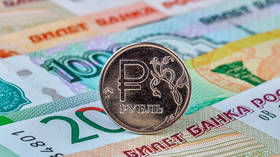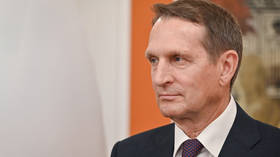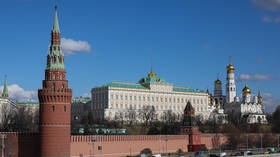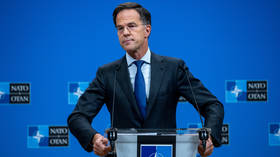‘No consensus’ in EU on new Russia sanctions – Hungary

EU countries have so far failed to agree on the next round of sanctions against Russia, Hungarian Finance Minister Mihaly Varga revealed on Tuesday. Speaking to reporters ahead of an EU Council meeting in Luxembourg, Varga noted that member states could return to discussing the matter next month.
“On the topic of the sanctions there is no consensus in this moment. Probably in November we will revive this issue,” Varga stated. The minister previously warned that sanctions have been ineffective and only weaken Europe.
Over the past two years, the bloc has placed 14 rounds of restrictions on Russia in connection with the Ukraine conflict, pitching them as a way to force Moscow to end its military operation by destabilizing the country’s economy. The measures have ranged from blacklisting prominent Russian individuals and entities to trade bans and tariff hikes, as well as freezing Russian assets held abroad.
Dozens of companies in third countries, such as China and the UAE, have also been targeted over their alleged supply of dual-use goods and technologies to Russia. The latest sanctions passed in July targeted the shipping of Russian liquefied natural gas and the country’s payment system.
Many EU officials have complained it has been growing ever more difficult to decide what to sanction, especially after Hungary took over the six-month rotating presidency of the EU Council. Budapest has been opposed to sanctioning Russia from the start, and has repeatedly blocked certain measures from being implemented. For instance, some EU members, particularly the Baltic states and Poland, have been pushing for an end to nuclear cooperation with Moscow, which Hungary considers a ‘red line.’
According to an August report by Euractiv, citing diplomatic sources, the pushback from Budapest could make it impossible for members to agree on a 15th round of sanctions, at least until the end of Hungary’s presidency.
Moscow has long criticized the measures targeting its economy and trade as illegal. Many experts in both Russia and the West have acknowledged that the sanctions have brought more harm to the countries imposing them than to Russia itself.














